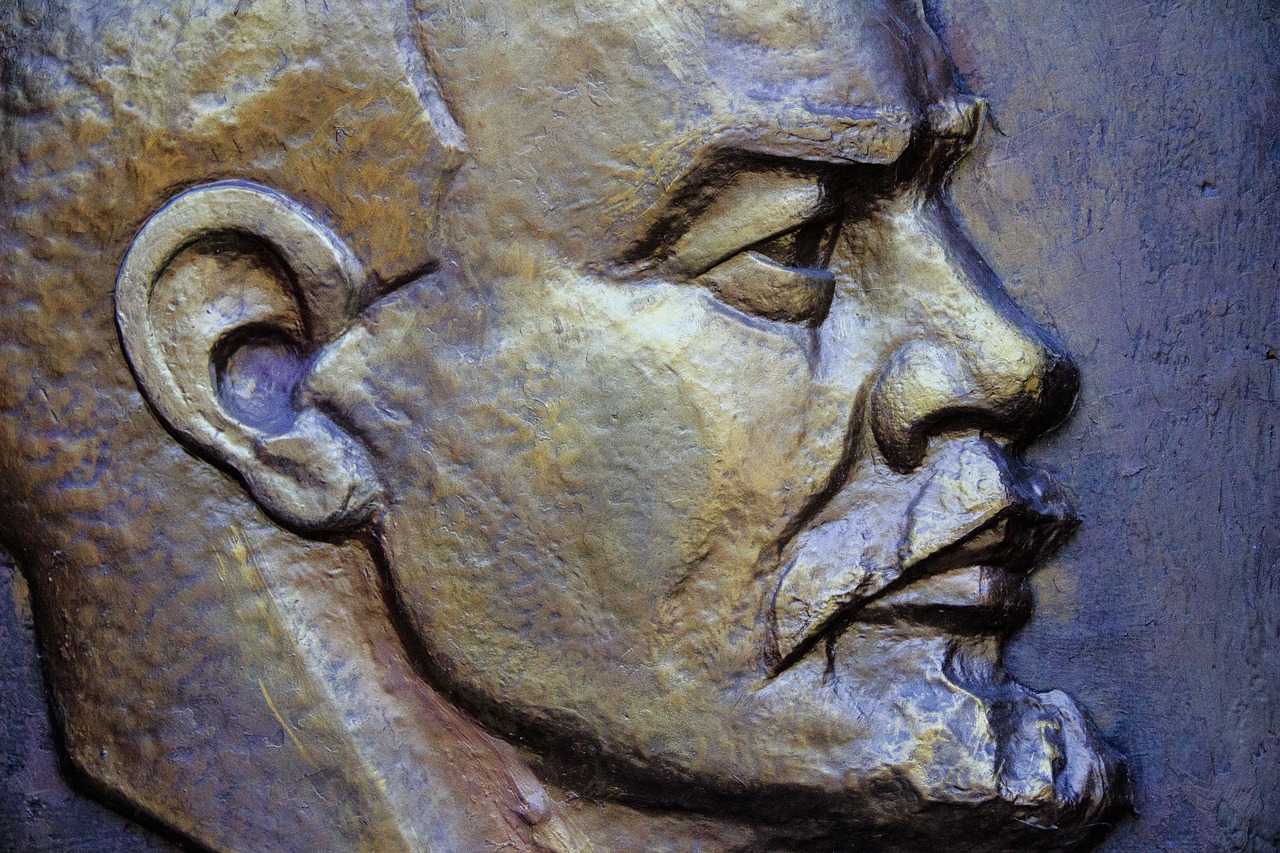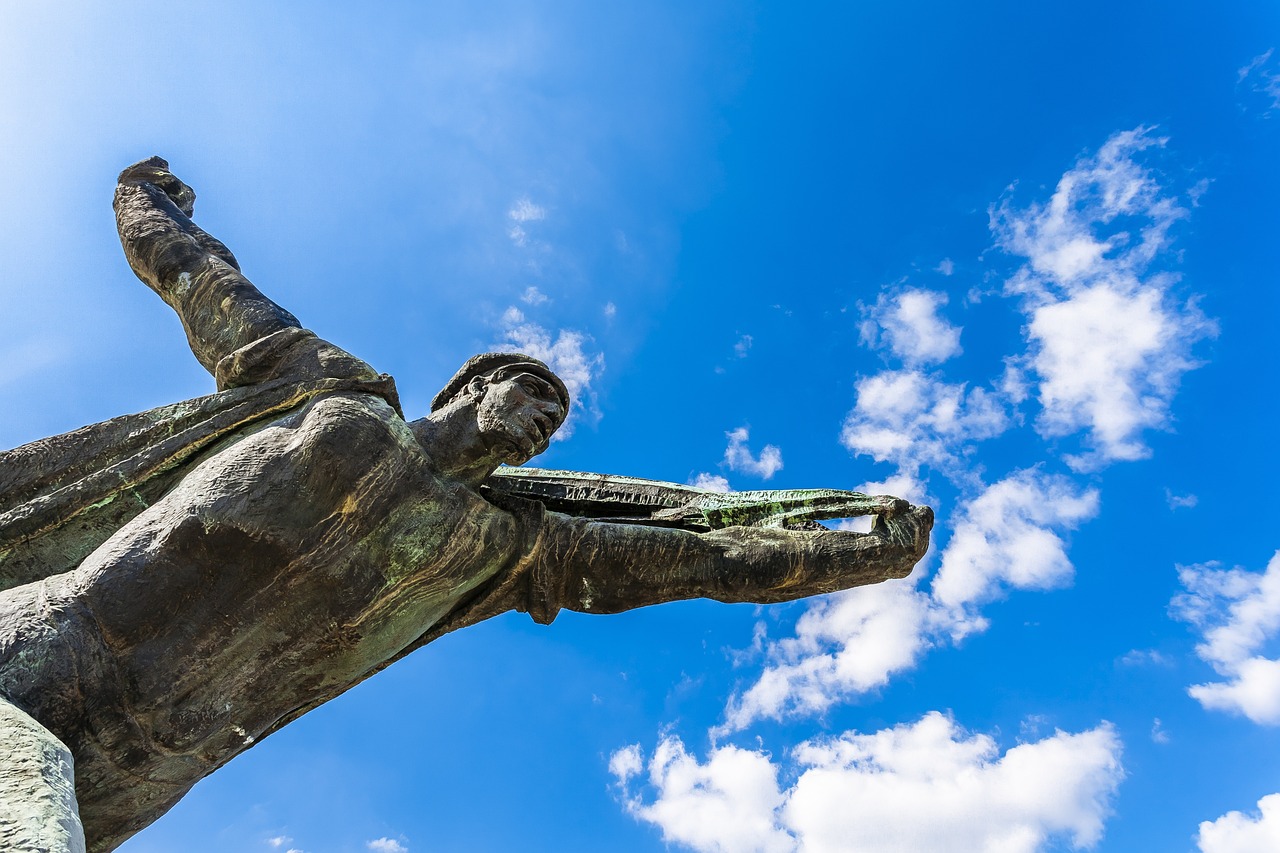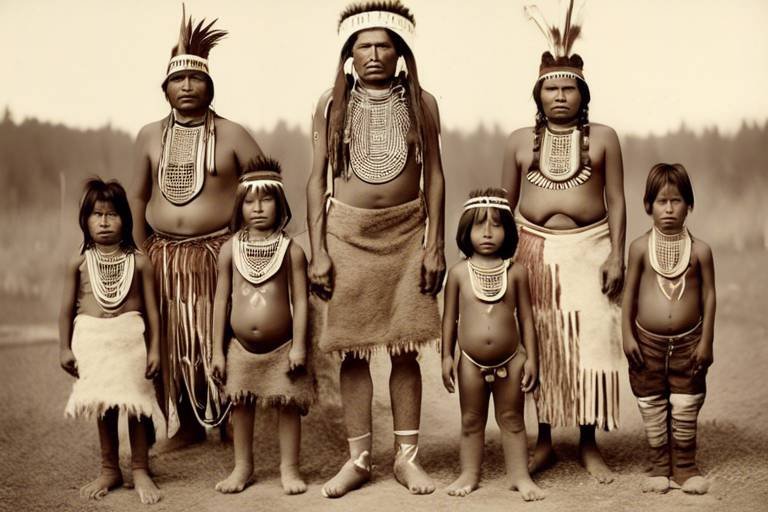The Haitian Revolution - First Successful Slave Rebellion
Exploring the historical significance and impact of the Haitian Revolution, which marked the first successful slave rebellion leading to the establishment of Haiti as an independent nation in 1804.
The Haitian Revolution stands as a monumental event in history, symbolizing the resilience and determination of the enslaved population in the face of oppression and brutality. It was not merely a revolt against the chains of slavery but a seismic shift that reverberated across continents, challenging the very foundations of colonial power and igniting the flames of freedom.
At the heart of this revolution was a fierce desire for liberty, a yearning for autonomy that transcended the boundaries of chains and plantations. The enslaved people of Haiti, fueled by a shared vision of emancipation, rose up against their oppressors with a fervor that shook the pillars of the institution of slavery to its core.
The Haitian Revolution was not just a rebellion; it was a declaration of independence, a proclamation that echoed the cries of generations past and reverberated through the annals of time. It was a revolution that dared to defy the status quo, to challenge the norms of a society built on the backs of the enslaved.
As the dust settled and the smoke of battle cleared, Haiti emerged as a beacon of hope, a testament to the indomitable spirit of those who dared to dream of a better tomorrow. The legacy of the Haitian Revolution endures as a reminder that even in the darkest of times, the flame of freedom can never be extinguished.

Causes of the Haitian Revolution
Exploring the historical significance and impact of the Haitian Revolution, which marked the first successful slave rebellion leading to the establishment of Haiti as an independent nation in 1804.
The causes of the Haitian Revolution were deeply rooted in the oppressive social, economic, and political conditions of the time. Slavery, a system that dehumanized and exploited the enslaved population, was a major catalyst for the uprising. The enslaved Africans and Afro-descendants in Saint-Domingue endured unimaginable cruelty and brutality, fueling their desire for freedom and justice. The stark inequality between the white plantation owners and the enslaved laborers created a powder keg of resentment and discontent, ready to explode at any moment.
Furthermore, the ideas of the French Revolution, with its emphasis on liberty, equality, and fraternity, inspired many in Saint-Domingue to question their own subjugation and demand their rights as human beings. The revolutionary fervor sweeping across Europe also had a significant impact on the enslaved population, igniting a spark of rebellion against their oppressors.
The economic exploitation of the colony by the French colonial administration, coupled with the harsh living and working conditions imposed on the enslaved population, created a volatile environment ripe for revolution. The combination of these social, economic, and political factors set the stage for the Haitian Revolution to erupt in a blaze of defiance and determination.

Leaders of the Haitian Revolution
The Haitian Revolution, a monumental event in history, was led by remarkable individuals who spearheaded the fight for freedom and independence. Among the prominent leaders of the Haitian Revolution were Toussaint Louverture, Jean-Jacques Dessalines, and Henri Christophe. These visionary figures played pivotal roles in rallying the enslaved population towards liberation from colonial oppression.
Toussaint Louverture, often referred to as the "Black Napoleon," emerged as a strategic military leader and a symbol of resistance against French colonial rule. His tactical brilliance and unwavering determination inspired fellow revolutionaries to unite and challenge the status quo. Louverture's leadership prowess was instrumental in galvanizing the enslaved masses and orchestrating successful uprisings against the oppressors.
Jean-Jacques Dessalines, a former slave who rose to become the first ruler of independent Haiti, embodied the spirit of defiance and resilience. Known for his fierce determination and uncompromising stance against slavery, Dessalines led the final charge that culminated in the declaration of Haiti's independence in 1804. His unwavering commitment to the cause of freedom solidified his legacy as a national hero.
Henri Christophe, a military commander and later the self-proclaimed King of Haiti, played a crucial role in fortifying the newly formed nation and establishing its sovereignty. Christophe's vision for a free and prosperous Haiti led to the construction of the Citadelle Laferrière, a monumental fortress symbolizing the strength and resilience of the Haitian people. His leadership during tumultuous times ensured the stability and security of the fledgling nation.
These leaders of the Haitian Revolution exemplified courage, determination, and vision in the face of adversity, inspiring generations to come. Their legacy continues to resonate in Haiti's history and serves as a testament to the power of unity and collective action in the pursuit of freedom and justice.

Strategies and Tactics
During the Haitian Revolution, the enslaved population and their leaders employed a variety of to combat the colonial powers and secure victories in their quest for freedom and independence. One of the key strategies utilized was guerrilla warfare, a form of irregular warfare involving small, mobile combat groups that allowed the revolutionaries to strike quickly and retreat, disrupting the larger, more organized colonial forces. This tactic proved effective in wearing down the enemy and gaining territorial advantages.
Additionally, the revolutionaries formed alliances with various groups, including other enslaved individuals, free people of color, and even rival colonial powers, such as the British and Spanish, who were also at odds with the French. These alliances provided crucial support in terms of resources, manpower, and military expertise, strengthening the revolutionaries' position and expanding their resistance movement.
Moreover, the leaders of the Haitian Revolution, such as Toussaint Louverture and Jean-Jacques Dessalines, demonstrated strategic brilliance in their military planning and execution. They effectively organized their forces, implemented surprise attacks, and capitalized on the terrain to outmaneuver the better-equipped colonial armies. Their ability to adapt to changing circumstances and exploit the weaknesses of their opponents played a significant role in the success of the rebellion.
Furthermore, the revolutionaries utilized psychological warfare tactics to undermine the morale of the colonial forces and inspire loyalty among their own ranks. Propaganda, rumors of supernatural powers, and the promise of freedom and equality were employed to boost the spirits of the enslaved population and sow seeds of doubt and fear among their oppressors.
In essence, the combination of military prowess, strategic alliances, guerrilla tactics, and psychological warfare proved instrumental in the revolutionaries' ability to challenge the colonial powers and ultimately achieve independence, marking a significant turning point in the history of slave rebellions and anti-colonial movements.

International Impact
The of the Haitian Revolution reverberated far beyond the borders of the newly independent nation of Haiti. This seismic event sent shockwaves through the global landscape, fundamentally altering the course of history and challenging the established norms of the time. The successful uprising of enslaved individuals against their oppressors in Haiti sent a powerful message to the world, sparking hope and inspiration among marginalized communities everywhere.
One of the most significant consequences of the Haitian Revolution was its impact on the institution of slavery. The abolition of slavery in Haiti following the revolution sent a clear message that the oppressive system of forced labor could be overthrown, inspiring enslaved individuals in other parts of the world to resist and rebel against their own subjugation. The revolution also dealt a severe blow to the economic foundations of colonial powers heavily reliant on slave labor, forcing them to rethink their practices and policies.
Furthermore, the Haitian Revolution had a profound influence on the spread of revolutionary ideals across the Caribbean and Latin America. The successful struggle for independence in Haiti served as a beacon of hope for other oppressed peoples in the region, igniting similar movements for freedom and self-determination. The revolution inspired a wave of anti-colonial sentiment and nationalist fervor, leading to a series of uprisings and rebellions against colonial rule throughout the Americas.
Moreover, the international impact of the Haitian Revolution extended beyond the realms of politics and economics to the cultural and social spheres. The revolution challenged prevailing notions of racial hierarchy and superiority, highlighting the inherent dignity and resilience of marginalized communities. It paved the way for a reevaluation of traditional power structures and social norms, opening up new possibilities for equality and justice in a world marked by inequality and oppression.
In conclusion, the International Impact of the Haitian Revolution was profound and far-reaching, leaving an indelible mark on the course of history and inspiring generations of freedom fighters and revolutionaries around the world. The revolution's legacy continues to resonate today, serving as a powerful reminder of the enduring power of resistance, solidarity, and the relentless pursuit of liberty and justice for all.

Legacy of the Haitian Revolution
The legacy of the Haitian Revolution is deeply intertwined with the identity, culture, and political landscape of Haiti, leaving an indelible mark on the nation and reverberating across the globe. The successful uprising against colonial rule and the establishment of Haiti as the first independent black republic in 1804 not only shattered the chains of slavery but also inspired marginalized communities worldwide to fight for their freedom and rights.
One of the most significant legacies of the Haitian Revolution is its impact on the concept of freedom and self-determination. By demonstrating that enslaved individuals could rise up and overthrow their oppressors, the revolution challenged the prevailing notions of racial inferiority and subjugation. It served as a beacon of hope for those enduring oppression and ignited a sense of empowerment among marginalized populations.
Furthermore, the Haitian Revolution played a pivotal role in shaping Haiti's cultural identity. The rich tapestry of African, indigenous, and European influences that emerged during and after the revolution continues to define Haitian art, music, cuisine, and religious practices. This cultural fusion reflects the resilience and creativity of the Haitian people in the face of adversity.
In terms of politics, the Haitian Revolution set a precedent for anti-colonial movements around the world. It demonstrated that a united front against colonial powers could lead to successful liberation and independence. The establishment of Haiti as a free nation challenged the existing power dynamics and inspired other oppressed peoples to resist and fight for their rights.
Moreover, the legacy of the Haitian Revolution extends beyond Haiti's borders, influencing the course of history in the Caribbean and Latin America. The abolition of slavery in Haiti sent shockwaves through the global slave trade, sparking debates on the morality of forced labor and contributing to the eventual abolition of slavery in other parts of the world. The revolution's impact on the institution of slavery reverberated far and wide, leaving a lasting impression on the fight for human rights and dignity.
In conclusion, the legacy of the Haitian Revolution is a testament to the enduring spirit of resistance, resilience, and liberation. It serves as a reminder of the power of unity, courage, and determination in the face of adversity. The lessons learned from the Haitian Revolution continue to inspire movements for justice and equality, emphasizing the importance of standing up against oppression and fighting for a better future for all.

Challenges and Obstacles
Exploring the historical significance and impact of the Haitian Revolution, which marked the first successful slave rebellion leading to the establishment of Haiti as an independent nation in 1804.
The Haitian Revolution, despite its remarkable success, faced numerous challenges and obstacles that tested the resolve and resilience of the revolutionaries. Internal divisions among the leaders, differing visions for the future of Haiti, and power struggles threatened to undermine the unity of the movement. The revolutionaries had to navigate through these complex dynamics to maintain a cohesive front against the colonial powers.
Furthermore, external threats posed significant challenges to the revolution. The constant military interventions by European powers, particularly France, aimed to suppress the rebellion and reassert control over the colony. The revolutionaries had to fend off these powerful adversaries while also dealing with economic blockades and diplomatic isolation, which strained their resources and limited their ability to sustain the revolution.
In addition to these external pressures, the revolutionaries faced daunting economic challenges. The destruction caused by years of warfare, coupled with the loss of labor from the emancipated slaves, crippled the agricultural economy of Haiti. Rebuilding the economy and establishing a stable financial system became imperative tasks for the newly independent nation, requiring innovative solutions and strategic planning.
Despite these formidable obstacles, the revolutionaries demonstrated remarkable resilience and determination in overcoming the challenges they encountered. Through strategic alliances with other revolutionary movements in Latin America and the Caribbean, they bolstered their military strength and gained international support. The leadership of figures like Toussaint Louverture and Jean-Jacques Dessalines proved instrumental in rallying the population and guiding them through tumultuous times.
Ultimately, the Haitian Revolution serves as a testament to the indomitable spirit of those who refuse to accept oppression and injustice. The challenges and obstacles faced by the revolutionaries only served to strengthen their resolve and commitment to achieving freedom and equality for all. Their perseverance in the face of adversity continues to inspire movements for liberation and social justice around the world.
Q: What were the main causes of the Haitian Revolution?
A: The Haitian Revolution was primarily fueled by the brutal institution of slavery, economic inequality, and the ideals of liberty and equality inspired by the French Revolution.
Q: Who were the key leaders of the Haitian Revolution?
A: Key figures in the Haitian Revolution included Toussaint Louverture, Jean-Jacques Dessalines, and Henri Christophe, who played pivotal roles in leading the enslaved population to independence.
Q: How did the Haitian Revolution impact the institution of slavery globally?
A: The success of the Haitian Revolution challenged the legitimacy of slavery worldwide, sparking debates on abolition and contributing to the eventual end of the transatlantic slave trade.
Q: What lessons can be learned from the Haitian Revolution?
A: The Haitian Revolution teaches us about the power of unity, resilience, and the enduring struggle for freedom in the face of adversity. It serves as a reminder of the importance of standing up against oppression and fighting for justice.

Repercussions on Slavery
Following the success of the Haitian Revolution, the repercussions on slavery reverberated globally, challenging the very foundation of the institution. The bold act of enslaved individuals rising up and overthrowing their oppressors sent shockwaves through the international community, sparking debates on the morality and sustainability of slavery.
The Haitian Revolution served as a powerful example that slaves were not mere property but individuals capable of organizing and fighting for their freedom. This newfound realization ignited abolitionist movements in various parts of the world, pushing for the end of the brutal practice of forced labor.
Colonial powers were forced to confront the harsh reality that their economic prosperity built on the backs of enslaved people was no longer morally justifiable. The success of the Haitian Revolution highlighted the inherent cruelty and inhumanity of slavery, leading to increased pressure for its abolition.
Furthermore, the Haitian Revolution shattered the myth of white supremacy and demonstrated that people of African descent could successfully challenge and defeat European colonial powers. This shift in power dynamics fueled resistance movements in other slave societies, inspiring oppressed individuals to rise up against their oppressors.
As the news of Haiti's independence spread, it struck fear into the hearts of slave owners everywhere, destabilizing the foundation of the slave economy. The Haitian Revolution served as a stark reminder that the oppressed could no longer be silenced, paving the way for the eventual demise of slavery worldwide.

Lessons Learned
As we reflect on the tumultuous and transformative journey of the Haitian Revolution, we uncover profound lessons that resonate through the corridors of history. This epic struggle for freedom and independence against formidable colonial powers offers invaluable insights into the resilience of the human spirit and the power of unity in the face of oppression.
One of the fundamental lessons learned from the Haitian Revolution is the unwavering determination of the enslaved population to break the chains of bondage and forge their own destiny. Through unwavering resilience and unyielding resolve, the revolutionaries demonstrated that the quest for freedom knows no bounds and that the human spirit is indomitable in the pursuit of justice.
Moreover, the Haitian Revolution serves as a poignant reminder of the importance of solidarity and collaboration in the face of adversity. The diverse factions and leaders of the revolution set aside their differences and united under a common cause, showcasing the power of unity in overcoming seemingly insurmountable challenges.
Furthermore, the Haitian Revolution underscores the significance of strategic planning and tactical innovation in achieving revolutionary goals. From guerilla warfare tactics to diplomatic maneuvers, the revolutionaries adeptly navigated complex military and political landscapes, showcasing the ingenuity and adaptability required to triumph against formidable foes.
Additionally, the legacy of the Haitian Revolution imparts profound lessons on the enduring impact of liberation struggles and the responsibility of safeguarding hard-won freedoms. The sacrifices made by the revolutionaries serve as a testament to the price of liberty and the perpetual vigilance required to preserve the gains of past struggles.
In essence, the Haitian Revolution stands as a beacon of hope and inspiration for future generations, reminding us of the indomitable spirit of those who dare to challenge oppression and injustice. The from this historic uprising continue to resonate in the ongoing quest for equality, justice, and freedom in our ever-evolving world.
Frequently Asked Questions
- What were the main causes of the Haitian Revolution?
The Haitian Revolution was primarily fueled by the injustices of slavery, social inequality, and political oppression. The enslaved population, inspired by the ideals of freedom and equality, rose up against their oppressors and fought for independence.
- Who were the key leaders of the Haitian Revolution?
Key figures in the Haitian Revolution included Toussaint Louverture, Jean-Jacques Dessalines, and Henri Christophe. These leaders played vital roles in organizing the rebellion, leading military campaigns, and ultimately securing Haiti's independence.
- What were the strategies and tactics employed during the Haitian Revolution?
The revolutionaries utilized a combination of military strategies, guerrilla warfare tactics, and alliances with other powers to combat colonial forces. Their resilience, adaptability, and unity were crucial in achieving significant victories.
- What was the international impact of the Haitian Revolution?
The Haitian Revolution had profound global repercussions, challenging the institution of slavery, inspiring anti-colonial movements, and spreading revolutionary ideals across the Caribbean and Latin America. It reshaped the geopolitical landscape of the time.
- How did the Haitian Revolution influence the legacy of slavery?
The success of the Haitian Revolution had a significant impact on the institution of slavery worldwide. It sparked debates on abolition, questioned the morality of forced labor practices, and contributed to the eventual dismantling of slavery in various parts of the world.



















